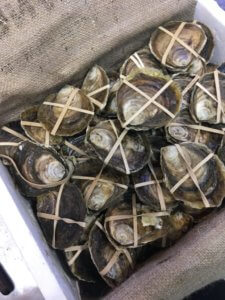Aquaculture or rather, fish farming, attracts considerable controversy. Some say it’s the most environmentally efficient food system we’ve got. Others say farmed fish are toxic, fed waste products and are polluting our precious oceans. The reality is that all of these things can be true. Let’s discuss.
In terms of broad environmental impact, aquaculture has the potential to grow food more efficiently than most forms of animal agriculture as it can be done with substantially less reliance on natural resources. In the past we have made a lot of environmental mistakes on land and as we increase our focus on fish farming, we are presented with an opportunity to not make those mistakes again in our relatively untouched oceans. This means being incredibly careful in the decisions we make around the species we choose and where we place our farms, the choices we make in feed, and the scale of the farms we are looking to build.
Examples of fish farming that is good for the environment
We’ll start with the positive.
Farmed shellfish like oysters, mussels and scallops are some of our most sustainable food options. Why? Compared to other forms of aquaculture, they require no additional feeding as they tend to draw their nutrients directly from the ocean currents in which they are grown. In this way, they create an incredibly direct link from sunshine to highly nutritious animal protein via plants (in the form of plankton). This of course means that shellfish don’t place any further burden on the environment.

In some cases farming shellfish actually reduces pollution and improves water quality. For example, fertiliser runoff from land based farming is a common water pollutant, but shellfish have the ability to filter this from the water and convert it into food. This also has the added benefit of reducing the likelihood of toxic algal blooms in the area where shellfish farming occurs.
Back on land, redclaw crayfish, marron and yabbies farmed in ponds also often use no additional feed other than the occasional bale of hay to fertilise pond water making these farmed species good sustainable options.
To read the complete article, please click the below:
To get more information on Aquaculture, please register below: